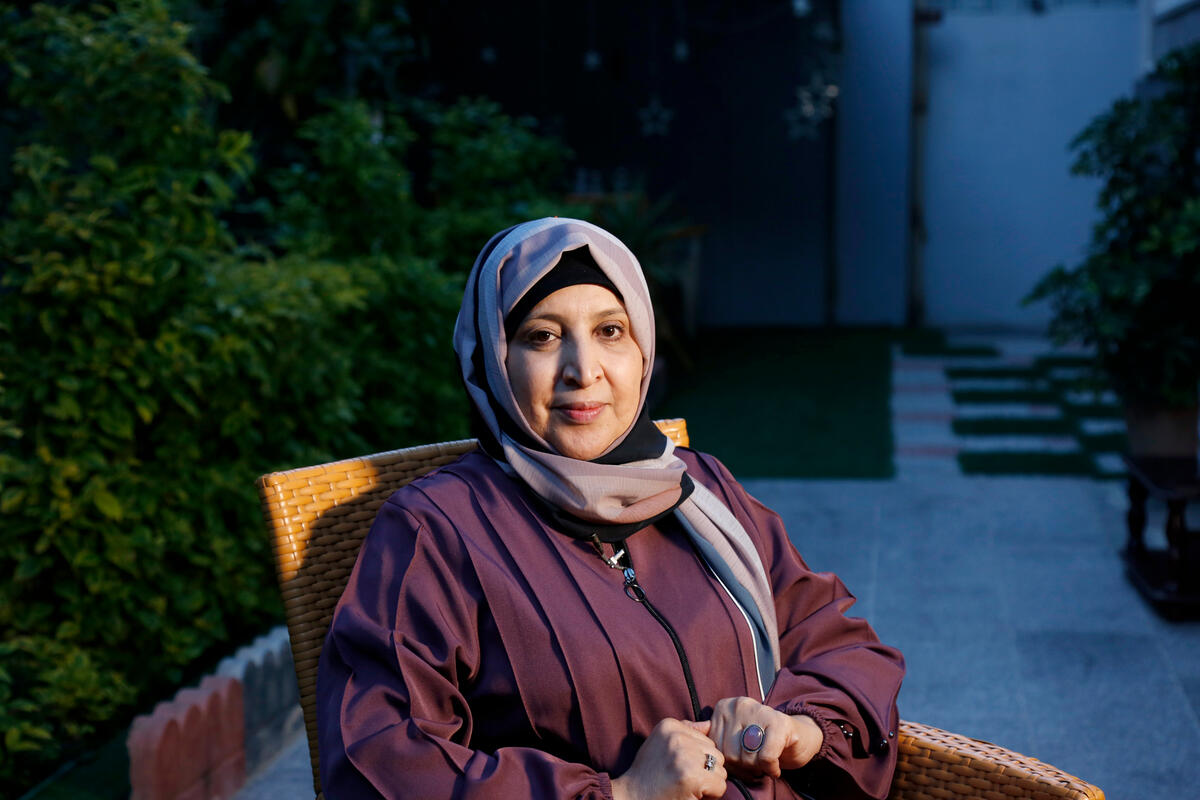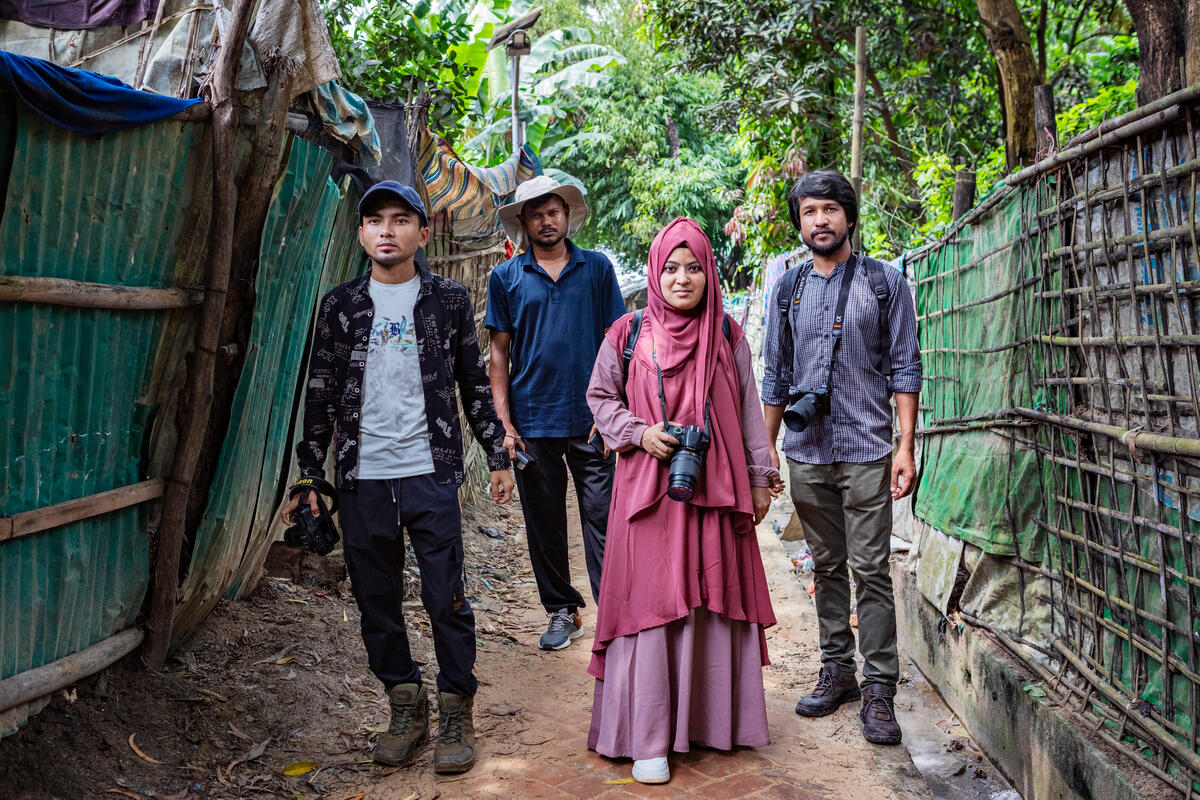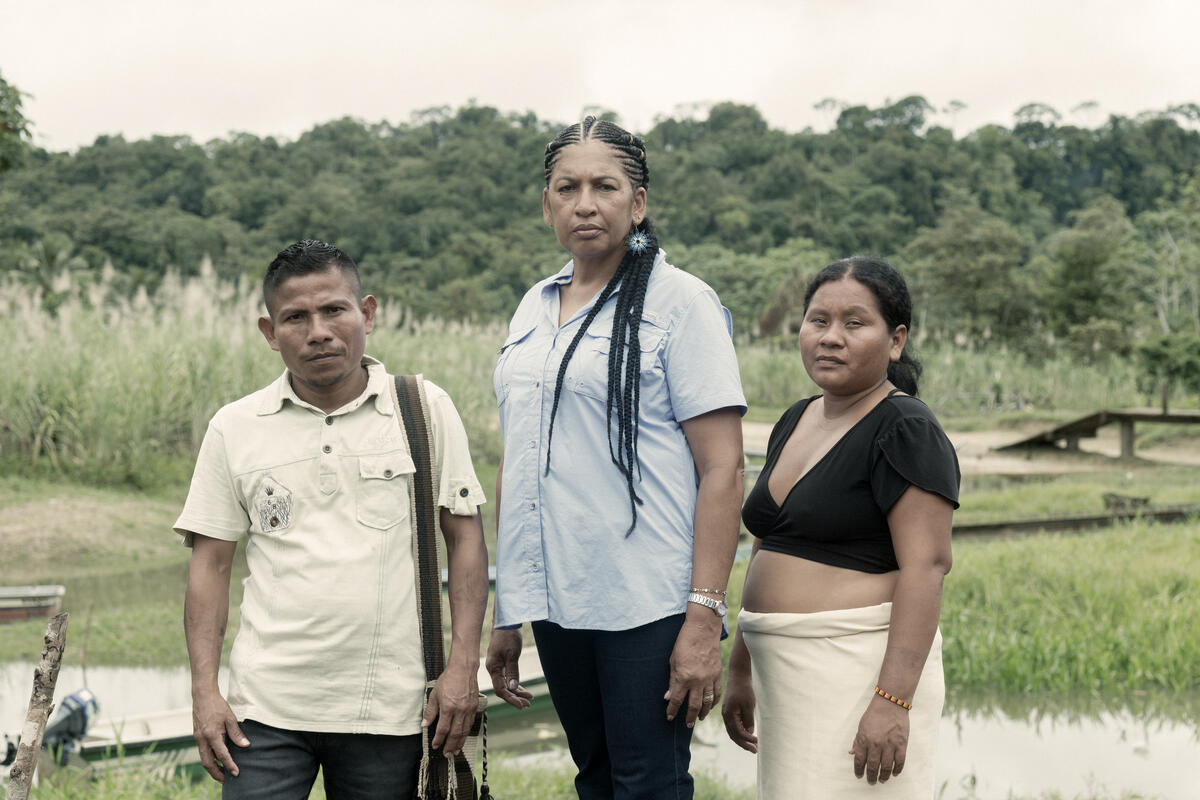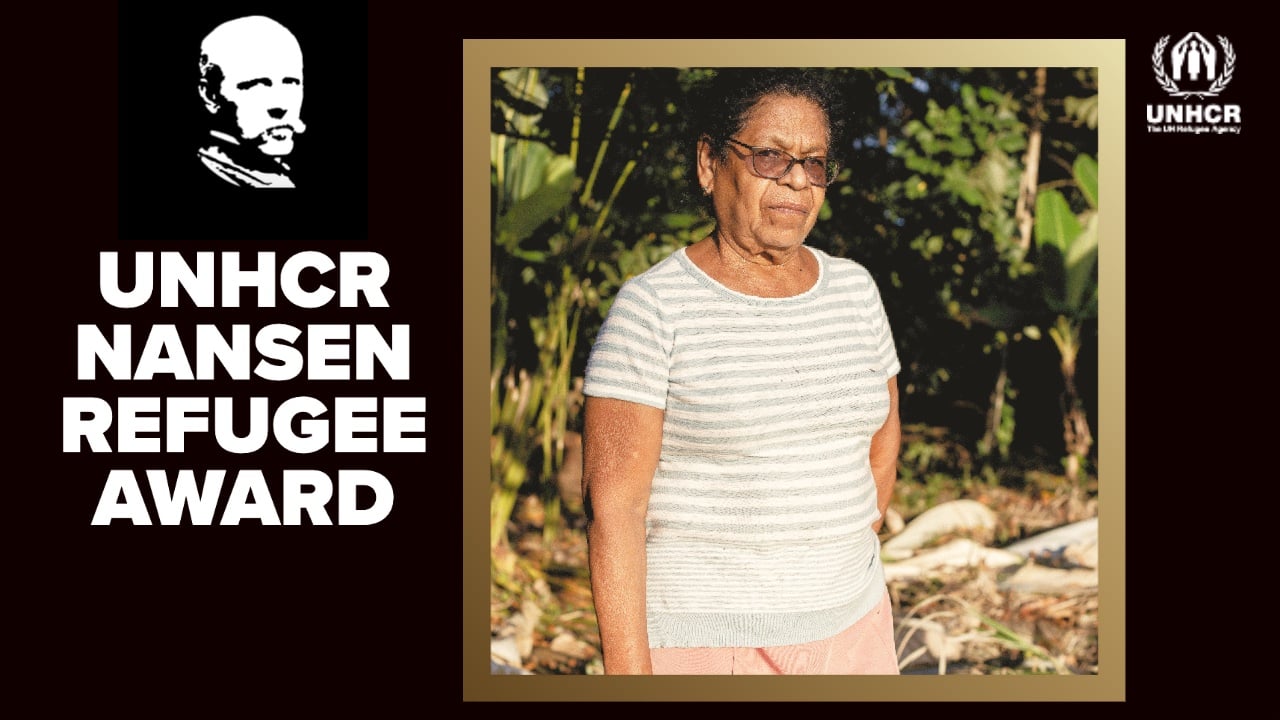Nansen Award: Mine clearers in Lebanon win Nansen Refugee Award
Nansen Award: Mine clearers in Lebanon win Nansen Refugee Award

BEIRUT, Lebanon, September 15 (UNHCR) - The 2008 Nansen Refugee Award will go to a group of international and Lebanese deminers who have cleared tens of thousands of mines and cluster munitions in southern Lebanon, allowing hundreds of thousands of displaced people to return home.
UN High Commissioner for Refugees António Guterres announced that the prestigious annual prize will go to Christopher Clark, the British coordinator of the UN Mine Action Coordination Centre-South Lebanon (UNMACC-SL), and his staff of nearly 1,000 civilian mine clearers, including women.
"Chris Clark and his Lebanese and international staff in the UN Mine Action Programme [run by UNMACC-SL] have worked courageously to clear southern Lebanon of the remnants of war and clusterbombs," Guterres said in a special message. "Through their painstaking work and devotion, the teams created the conditions for a safe and dignified return home for almost 1 million displaced Lebanese," he added.
"This recognizes the deminers who have given their lives, limbs and sight," Clark told journalists at a press conference in the Lebanon capital of Beirut on Monday. The former British soldier will be in Geneva on October 6 with Lebanese mine clearer Jamal Hammoud to receive the Nansen Award during the annual meeting of UNHCR's governing Executive Committee.
In mid-2006, over a period of five weeks, Israeli clusterbombs scattered between 2.6 and 4 million bomblets over urban and agricultural areas of southern Lebanon. More than 750,000 Lebanese fled the south and lived as internally displaced people in northern Lebanon, while another 250,000 people fled to Syria or further afield.
The Mine Action Programme was crucial in providing support to humanitarian operations in South Lebanon during the conflict and in the initial stages of the ceasefire, as well as in continuing clearance operations.
UNMACC-SL's deminers found and destroyed almost 150,000 clusterbomb submunitions in villages and agricultural land polluted during the 2006 war between Israel and Hezbollah militants. Before 2006, the organization cleared some 60,000 landmines, legacy of the long Israeli occupation that ended in 2000. At least 20 civilians and 14 mine clearers have been killed by unexploded ordnance in the south since the war and scores more injured.
"During our daily task of clearing remnants of war and cluster munitions, we were finding bombs inside houses, in gardens, in churches and mosques," mine clearer Hammoud told Monday's press conference. He said many people tried to clear their own homes of bomblets, risking their lives. "They had no choice. They needed to use their lands and live in their houses. They needed to survive."
Radhouane Nouicer, head of UNHCR's Middle East and North Africa Bureau, praised the mine clearers and said they deserved the respect, support and gratitude of the UN. "Demining is an essential component of UNHCR's mission in providing protection and seeking durable solutions to uprooted persons."
The Nansen Award is named after the Norwegian arctic explorer Fridtjof Nansen, who was appointed in 1921 by the UN's predecessor, the League of Nations, to be the very first High Commissioner for Refugees.
The Award, consisting of a medal and a US$100,000 monetary prize, is given out yearly to a person or group for outstanding services in supporting refugee causes. Clark said this year's winners would like to establish a community-based project in an area where they had cleared cluster munitions.
Last year's winner was Katrine Camilleri, a 37-year-old lawyer from Malta who demonstrated her dedication to helping refugees arriving in Malta in the face of threats that included an arson attack on her car and home.
The Nansen Award was created in 1954. Previous recipients include Eleanor Roosevelt, Médecins Sans Frontières, Queen Juliana of the Netherlands, Luciano Pavarotti and Graça Machel.
By Laure Chedrawi in Beirut, Lebanon








